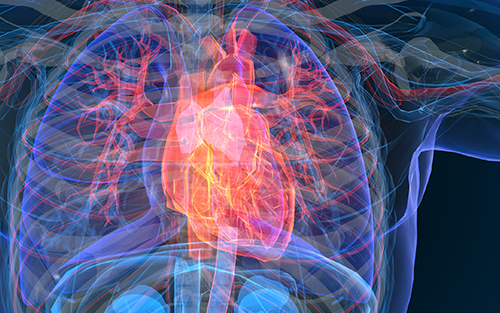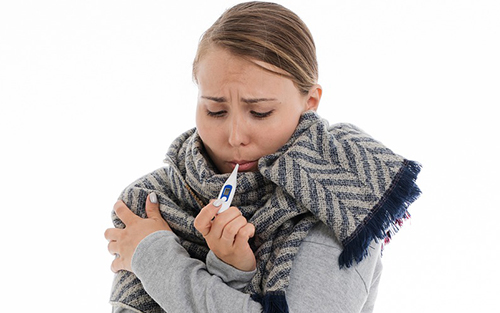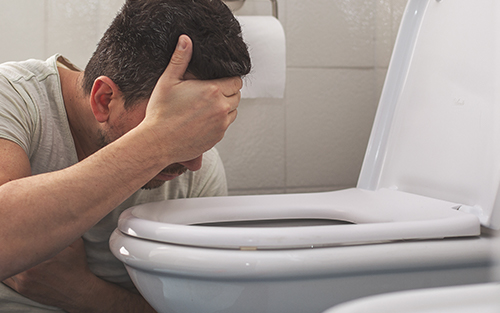Prevent a heart attack from severely crippling you, leaving you hospitalized, or worse. Your ability to recognize when you may be having a heart attack or suffering from congestive heart failure can get you to appropriate medical attention before your heart simply stops.

yourfootpalace.com gathered the following information about 7 signs that suggest heart trouble and the need to seek immediate medical attention.
Signs of a Heart Attack
A heart attack or myocardial infarction is the damaging or death of an area of the heart muscle (myocardium) resulting from a blocked blood supply to that area. You may be on the path to heart failure without realizing it or recognizing a buildup of acute symptoms. The following are signs that you may be in danger of suffering a myocardial infarction.
1. Chest Pain or Discomfort – The vast majority of heart attacks will involve discomfort in the center or left side of the chest that lasts for more than a few minutes or dissipates and comes back. The discomfort can resemble uncomfortable pressure, squeezing, fullness, or pain.
2. Pain or Discomfort in the neck, jaw, or back – If you are experiencing unrelenting jaw pain (not tooth discomfort), you must seek urgent medical attention. This may indicate the onset of a heart attack. Jaw pain can occur as pain travels or spreads from the chest to other areas of the body. This radiating pain may also be felt in your spine, arms, back (usually a persistent radiating pain in the upper left of your back), neck, or stomach.
3. Shortness of Breath (Dyspnea) – Difficulty breathing or shortness of breath, also called dyspnea, can sometimes result from strenuous exercise or severe nasal congestion. It may also indicate a more serious heart condition or lung disease.
Note: Your shortness of breath may be a symptom of heart disease or the onset of a heart attack (in this case, shortness of breath may be accompanied by edema swelling of the feet/ankles).
Tip: If you experience severe difficulty breathing suddenly or it is accompanied by chest pain, immediately call 9-1-1 for assistance.
4. Cold Sweats – Cold sweats can be caused by multiple conditions. They’re often associated with your body’s “fight or flight” response. A cold sweat is a clear sign of sudden and significant stress, which could be either physical or psychological. Often, it is a combination of the two.

When cold sweats are related to heart failure, know that pumping blood through obstructed or blocked arteries takes more effort from your heart. Your body sweats more in an attempt to maintain a lower body temperature during the extra physical exertion.
5. Lightheadedness – In addition to experiencing other symptoms like chest pressure or shortness of breath, you may feel dizzy or feel like you may pass out.
Note: If you take medication to control your blood pressure, this vertigo-like sensation may be the result of your body’s adjustment to the medication or a rapid drop in blood pressure.
Tip: If this condition occurs suddenly or repeatedly, contact your primary care physician immediately for instruction. If this condition is accompanied by other symptoms, call 9-1-1 for immediate medical help.
6. Heart Palpitations – When nearing or suffering a heart attack, you may feel as if your heart is skipping beats, or you may be very aware (with a heightened sensation) that your heart is beating.
7. Nausea and Vomiting – After eating or suddenly, you may feel sick to your stomach or randomly vomit. You may have these symptoms while leading up to or while suffering a heart attack.

Surviving a Heart Attack
Most heart attack survivors have coronary artery disease (CAD) and must make important lifestyle changes. There is a significant likelihood that a heart attack survivor will require daily medication (some temporary and some for the rest of your life) to prevent a future heart attack. Observe the following:
- Go to all scheduled medical follow-ups and explain any odd feelings or sensations.
- Adhere to prescribed medications and only alter or halt that prescription with your doctor’s consent.
- Track your weight daily (a gain of 2Lbs in one day or 5Lbs in one week is an indication that you are retaining water)
- Take daily blood pressure readings (120 systolic over 80 diastolic with a heart rate of 60 beats per minute is optimal for good health). Variations of these measurements should be discussed with your primary care physician. Read this article on ways to lower your blood pressure.
- Exercise daily (your heart is a muscle, and exercising it with cardio routines will help strengthen it)
- Change your diet to a cardio-friendly menu. Visit this menu for heart-healthy eating mayoclinic.org/diseases-conditions/heart-disease/in-depth/heart-healthy-diet/art-20046702
- Treat yourself to frequent get-aways or spa days.
- Avoid stressful situations or work conditions.
Note: Your heart condition may be hereditary. Even so, it may still be controlled or avoided through a healthy lifestyle, moderation, and doctor supervision.
Recognizing the Signs of a Heart Attack
In this article, you discovered essential information about the signs of myocardial infarction, more commonly known as a heart attack, what to do if you experience these signs, and what to do after such an event.
Time is everything when a heart attack happens. The ability to recognize that you are in trouble and get appropriate medical attention can prevent severe disability or even death.
Avoiding the symptoms of a heart attack may cause you to lose your cognitive abilities, your mobility, and can ultimately cost you your life.
Disclaimer
This article is in no way meant to diagnose or offer treatment for any heart failure or heart attack symptoms you may be experiencing. If you develop or already feel any of the symptoms cited in this article, you are strongly advised to seek immediate medical attention and if you have become incapacitated, suffered the loss of feeling/movement in your left arm or leg, or are experiencing severe (crushing) pain in your chest, immediately call 9-1-1 for instruction and medical assistance.
Sources:
mayoclinic.org/diseases-conditions/heart-attack/symptoms-causes/syc-20373106
cdc.gov/heartdisease/heart_attack.htm
heart.org/en/about-us/heart-attack-and-stroke-symptoms
hopkinsmedicine.org/heart_vascular_institute/conditions_treatments/conditions/shortness_breath.html
texasheart.org/heart-health/heart-information-center/topics/heart-attack-warning-signs/
(706) 521-5290
(678) 963-5958
To view the original version on Foot Palace, visit: https://www.yourfootpalace.com/7-signs-you-may-be-having-a-heart-attack/
No comments:
Post a Comment
Note: Only a member of this blog may post a comment.